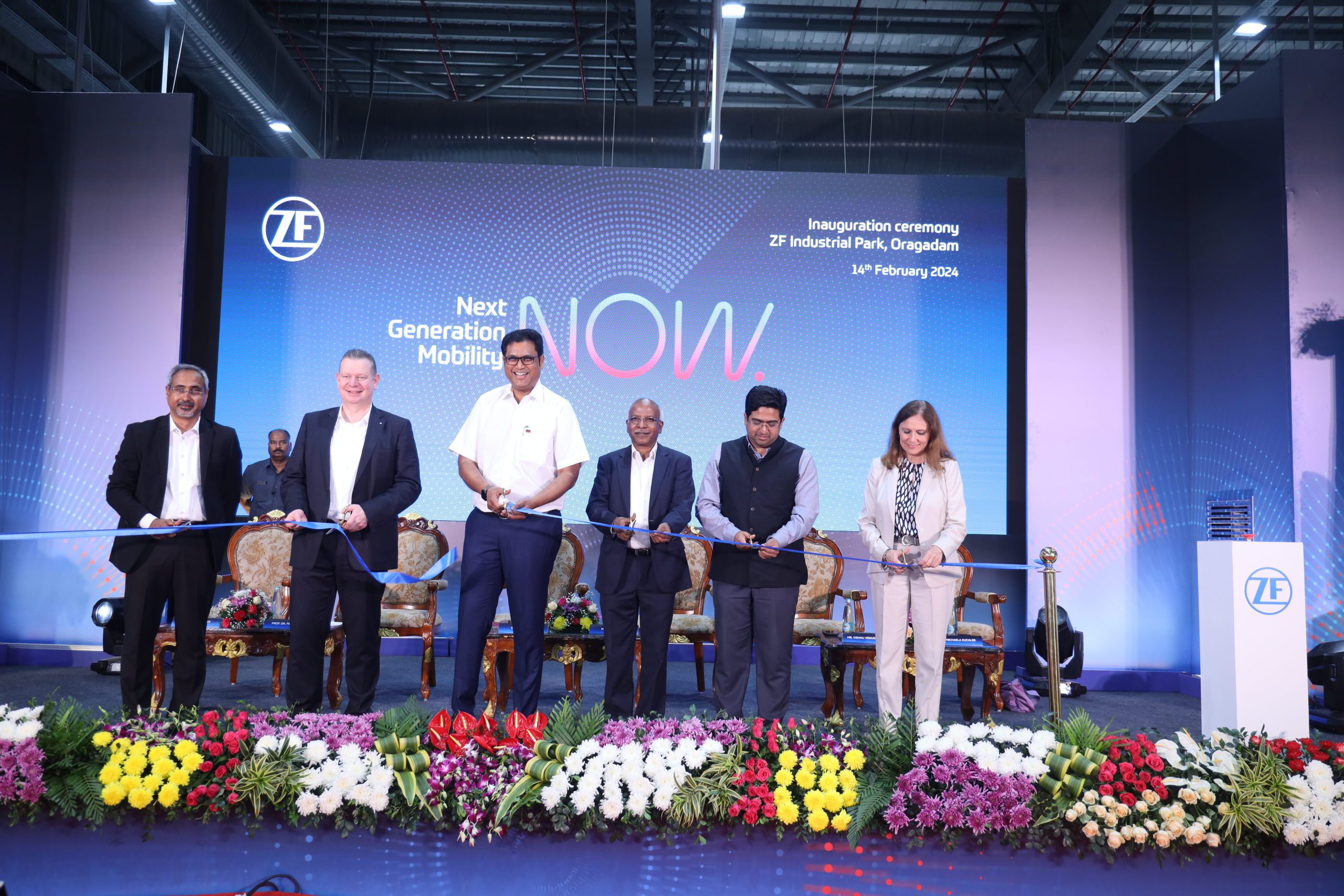 Werkseröffnung in Oragadam/ Indien: Prof. Dr. Peter Laier (2.v.l), Mitglied des ZF-Vorstands, und der Industrieminister der Region Tamil Nadu Dr. TRB Rajaa (3.v.l) . Foto: ZF
Werkseröffnung in Oragadam/ Indien: Prof. Dr. Peter Laier (2.v.l), Mitglied des ZF-Vorstands, und der Industrieminister der Region Tamil Nadu Dr. TRB Rajaa (3.v.l) . Foto: ZF
The ZF-Division Commercial Vehicle Solutions (CVS) division has opened a plant in Oragadam, India (Tamil Nadu province), where electric components for the Indian and global market will also be produced in the future. A week earlier, local production of the efficient and hybrid-capable PowerLine transmission for commercial vehicles for the North American market started at the US plant in Gray Court, South Carolina. With both locations, the CVS division is continuing its global growth and sustainability strategy.
Oragadam is the 19th ZF plant on the Indian subcontinent, the tenth in the Tamil Nadu region in the very south of India. In addition to brakes and chassis components, electrical components such as air compressors for light and medium-duty commercial vehicles will soon be produced there on an area of over 7,000 square meters. In a second phase, the size of the plant is to be expanded to 15,300 square meters. The total investment volume up to 2032 is 200 million euros.
Just last week, the ZF CVS Division expanded its North American plant in Gray Court (USA): After Friedrichshafen, it is the second production site for the hybrid-capable PowerLine commercial vehicle transmission – now for the North American market. The ramp-up plans envisage up to 200,000 units as early as next year.
With the expansion of its global production capacities, the ZF CVS Division is following a long-term growth and sustainability strategy: Demand in important market regions is met by setting up local plants (“local for local”). Local production also helps to avoid import duties and transportation costs. The German sites benefit from this strategy, as they also supply components for the systems. For example, mechatronic modules from Saarbrücken and electronic control units from Auerbach are supplied to Gray Court for PowerLine. And the ZF CVS plant in Friedrichshafen was only recently defined as the lead location for electromobility for commercial vehicle drives in the recently completed target vision.
Focus on sustainability
By investing in the new production capacities, ZF is also making its efforts with regard to sustainability clear. In general, production in the region reduces emissions that would otherwise be caused by the transportation of complete systems from more distant locations. ZF plans to operate the new location in India with 100 percent renewable energy. The plant has a solar plant that can supply up to 450 kilowatts, and any additional energy requirements will be secured through corresponding solar and wind energy offers as part of long-term contracts. The plant in Oragadam is also equipped with an infrastructure for collecting and reusing rainwater and aims to be water-neutral by 2025.